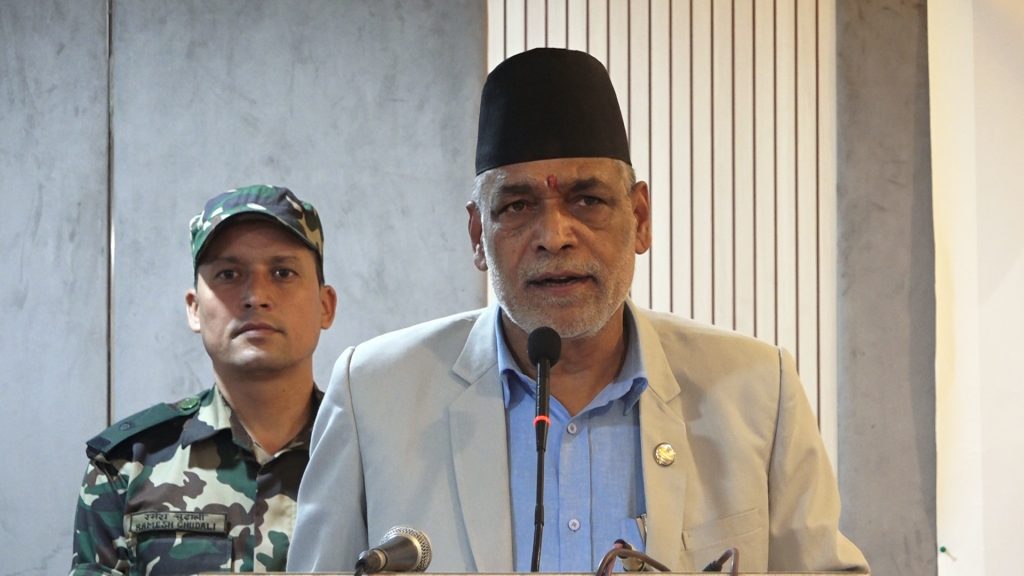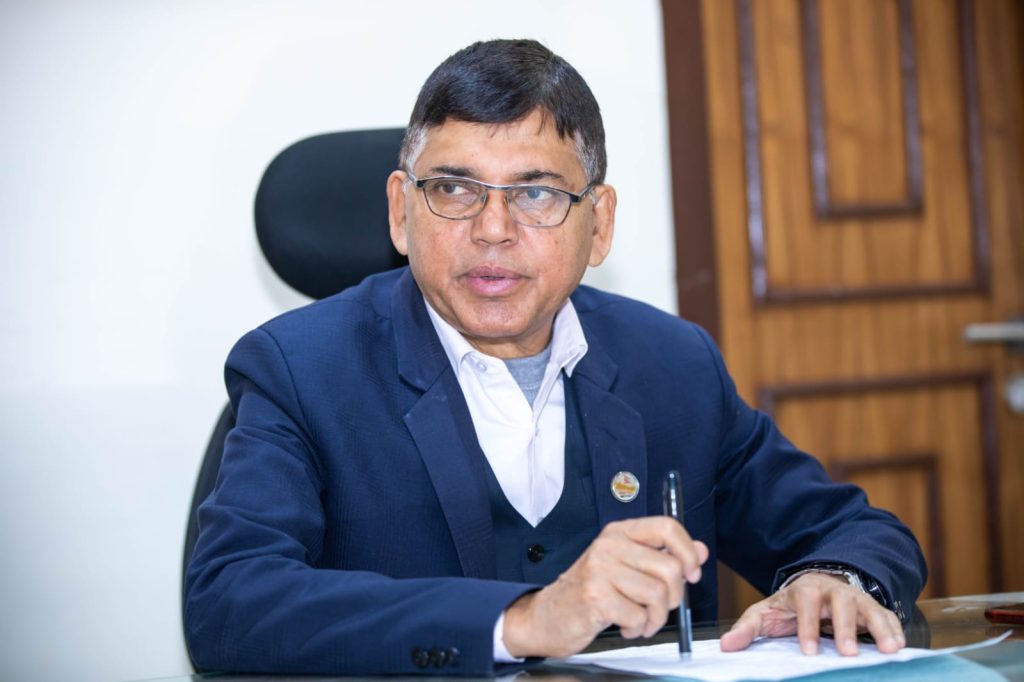Kathmandu, 25 June – The first-ever national conference on women shelters for victims/survivors of gender-based violence in Nepal commenced today at the Park Village Hotel in Kathmandu. The conference, organized by Saathi in collaboration with the Ministry of Women, Children and Senior Citizen and the National Network of Women Shelters, aims to address the pressing issues surrounding gender-based violence and promote empowerment of women and children through improved and effective shelter services. The three-day event will run from June 25th to June 27th, 2023.
Around 150 participants, shelter operators, gender experts, GBV survivors, psychosocial counselors, provincial, local government representatives will participate in the consultations. There will be 6 parallel thematic sessions and 3 plenary sessions ranging from Standard Operating Procedures, Emerging Issues, Inclusivity, Referral Services and Survivor Centered Approach, Resource Mapping and Sustainability of shelter
Speaking at the inaugural event, Hon. Surendra Raj Acharya, the Chief Guest and Minister of Women, Children and Senior Citizen, emphasized the need to improve the quality of services offered by shelters to ensure justice and empowerment for women and children facing violence. “women’s shelters should expand their work beyond curative efforts of gender-based violence (GBV) and focus on adopting preventive measures,” he added.
Hon. Kamala Parajuli, Chairperson of the National Women Commission, acknowledged the instrumental role played by shelter services in rebuilding the lives of women and girls affected by domestic and gender-based violence. “Shelters are supporting survivor women and girls to raise voice against the violence they faced. Different organizations are providing shelter services to the violence affected women and girls. Ultimately, Government should take responsibility of the shelters being run by other organizations,” Parajuli Added.
During the keynote address, Hon. Dr Arzu Rana Deuba, Member of Parliament, reflected on the history of the shelter movement in Nepal and highlighted the achievements, challenges, and the way forward. She expressed her belief that shelters should expand their focus to encompass the prevention of gender-based violence, beyond merely providing support to survivors. “Cases managed by women shelters, data, and other evidence at the shelters should be used to inform policies in the prevention of gender-based violence. As a lawmaker and women’s rights activist, I am committed to improving policies related to shelters and strengthening the monitoring and regulation of shelter services.”Duba said.
Bandana Rana, UN CEDAW Committee Member and Convener of the conference and the co-founder and former chair of the Global Network of Women Shelters, drew upon her experience in taking the shelter movement forward nationally and globally. She highlighted the united efforts of those operating sheltersnationally, regionally and globally and the emergence of new trends and approaches in shelter services. Rana expressed that this conference provides an opportunity for all stakeholders to celebrate achievements, reflect on challenges, and learn from each other. “Stronger shelter movement results in addressing diverse needs and quality services for the GBV survivors who are banished from their homes and stigmatized in society,” she added.
Won Young Hong, Country Representative of UNFPA in Nepal, reaffirmed UNFPA’s support in preventing gender-based violence. Saying that violence against women and children still too high across the world, she said that the shelters provide most important services for the violence survivors. “Shelter serves the women who faces unbearable impact of violence and have no any other safe places to go. The Shelter saves lives of women and children”, she added.
Sajani Amatya, President of Saathi, expressed the hope that the conference would contribute to providing policy direction for making women shelters more inclusive and responsive to the needs of women and children seeking refuge.
Uma Rajya Laxmi Shah, Co-founder and past president of Saathi, who initiated the formation of network of shelter alliance in Nepal, shared that COVID -19 situation made shelter operators realize the need of shelter services as a collective movement. “Shelter services, which were not listed as essential, faced tremendous difficulties during the COVID-19 pandemic and subsequent lockdown. The need for shelters became most apparent when domestic violence spiked. The collective movement of shelter operators was crucial in addressing this need,” Shah, added. Saathi initiated the shelter network in 2020 and currently serves as its secretariat, facilitating collaboration and advocating for the recognition of shelter services as essential in Nepal
“Shelter services which is not listed as essential services faced tremendous difficulties to run during the pandemic and subsequent lockdown. The shelter need is realized most during the COVID 19 when the domestic violence spiked”, Shah added. Shelter network was initiated by Saathi which currently serves its secretariat.
As part of the event, survivors of Shakti Samuha performed a dance depicting the plight of gender-based violence. Women survivors also shared their stories and experiences, highlighting how their lives were transformed after seeking refuge in shelters.
The conference aims to foster collaboration and coordination among shelter operators, enhance the quality of services, establish uniform shelter policies, and facilitate shared learning. It also seeks to improve inter-agency referral practices and advocate for the establishment of a formal national referral mechanism to better address the diverse needs of women and girls experiencing violence. Recognizing the significance of shelter services during pandemics and humanitarian crises, the network will request the government to designate shelter services as essential services and provide relevant support.
The conference will serve as a platform for cross-learning, promoting a collective voice against violence, and advocating for the rights, safety, and empowerment of women and girls. It will culminate in the development of a set of recommendations to strengthen shelter services, ensure inclusivity, sustainability, and adopt a survivor-centric approach. These recommendations will be presented to government authorities at various levels and serve as an advocacy document for organizations involved in providing safety, security, and empowerment.



















तपाईको बिचार